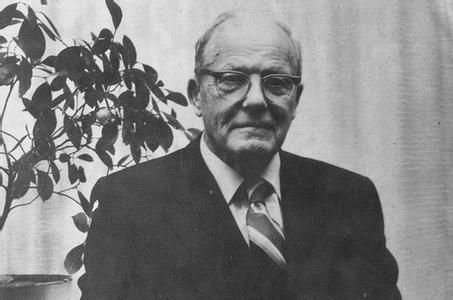J. G. Endicott, a peaceful warrior in wartime China
- By Lin Liyao
 0 Comment(s)
0 Comment(s) Print
Print E-mail China.org.cn, September 12, 2014
E-mail China.org.cn, September 12, 2014
As a missionary, one may not only preach the Bible or religious doctrine, but one can also spread peace, love and faith, especially to those who are in need of help and hope. Such a mission was engraved firmly in J. G. Endicott's heart throughout his whole life.
 |
|
James Gareth Endicott. |
James Gareth Endicott, also known as Wen Youzhang in China, was a renowned socialist and one of the most notable Canadian missionaries who helped the Chinese people fight against Japanese aggression (1937-1945) and pursue peace and liberation (1927-1949).
On the 69th anniversary of the end of World War II, Stephen Endicott, son of J. G. Endicott, recalled his father's life and contributions during China's wartime.
Born in Sichuan Province to Canadian missionary parents in 1898, J. G. Endicott was deeply influenced by his father, James Endicott, Sr. who grew up in a poor, immigrant farming family on the Canadian prairies and sympathized with the plight of the Chinese poor.
After serving in the Canadian army in France during World War I and graduating from the University of Toronto, J. G. Endicott returned to China with his bride, Mary Austin, as an evangelical and teaching missionary for the United Church of Canada.
In 1925, J. G. Endicott and his wife settled in Chongqing, where he began teaching English in a middle school before becoming a professor of English and Ethics at West China Union University. At the university, he also served as supervisor for the Student Christian Movement (SCM), in which many students connected with the rural Communist Party were involved.
During the War of Resistance Against Japanese Aggression, Chongqing was severely bombed, and the United Church of Canada responded favorably to a request from Madame Chiang Kai-shek to have Endicott serve as a political adviser for the so-called New Life Movement in 1939.
Later, when the United States entered the war against Japan, Endicott was asked to serve as an advisor to U.S. military intelligence from 1944 to 1945 as a liaison between the American military and the Chinese Communist forces fighting against the Japanese together. During this period, he got a chance to know Zhou Enlai, Dong Biwu, Qiao Guanhua, and other leaders of the Chinese Communist Party.
Initially a supporter of Chiang Kai-shek and his wife, Endicott resigned from his role as advisor to the Nationalists in 1944, and transferred his support to the Communists. When asked what had changed his mind, his son Stephen Endicott said, "My father once believed in Chiang Kai-shek, and thought he could improve China and bring a better life for Chinese people. But he changed his mind after seeing Chiang's officers starve their troops and the corruption within the Kuomintang and the four rich families [Chiang, Song, Kong and Chen families which controlled the whole country's politics and economy in the 1920s]."
After China's Civil War resumed in 1945, J. G. Endicott became a strong supporter of the Chinese Communist Party, and moved to Shanghai to publish the underground anti-Kuomintang Shanghai Newsletter and provide underground help to Chinese communists and progressive youth.
In 1947, Endicott returned to Canada and continued his support for the Chinese Communist Party by giving lectures and publishing the Canadian Far Eastern Weekly. At the time, however, Western countries were backing Chiang and his government, and Endicott's advice and views about Red China were unpopular. He was reviled by top Canadian politicians and slammed in the Western press as "public enemy No. 1."
In 1948, Endicott founded the Canadian Peace Congress and became vice-chair of the World Peace Council in Stockholm. After the People's Republic of China was established in October 1949, he advised the Canadian government to recognize the new country. Along with his wife, he published the Canadian Far Eastern Newsletter, which advocated understanding and friendship with the New China during the Cold War for more than 40 years.
In October 1983, Endicott paid his last visit to Chongqing and other places in Sichuan Province, where he had stayed for more than 20 years. When talking with his old Chinese friends at a gathering, Endicott said emotionally, "I have done little to this land, but China changed me from a missionary to a person of a new type. I love China, my second homeland, and I am sincerely happy to see her progress and development."
Shortly before he died in 1993, the Chinese government honored J. G. Endicott with the Peoples' Friendship Ambassador Award for his consistent support for the Chinese people's revolution and his dedication to the international peace movement.






Go to Forum >>0 Comment(s)